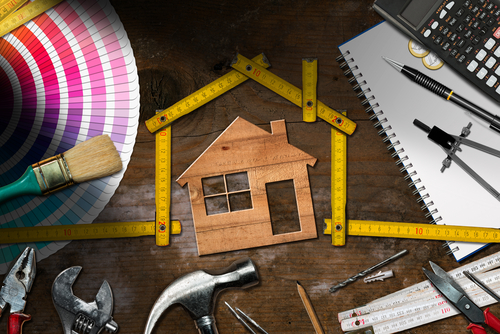
Why Rental Property Maintenance Matters
The Importance of Rental Property Maintenance
Maintaining rental properties is crucial for landlords who aim to protect their investment and keep tenants satisfied. Regular upkeep helps preserve property value, prevents costly repairs, and ensures tenant retention. Neglecting maintenance can lead to dissatisfied tenants, higher turnover, and even legal complications if the property becomes unsafe or uninhabitable.
This comprehensive guide covers everything landlords need to know about rental property maintenance, including different maintenance types and creating an effective checklist. Proactive and organized maintenance ensures properties remain in excellent condition, provides tenants with a safe living environment, and ultimately supports a successful rental business.
Why Rental Property Maintenance Matters
Maintaining rental properties is essential for long-term success. It not only safeguards your investment but also creates a positive tenant experience. Here’s why it’s critical:
1. Protect Your Investment
Your rental property is a significant financial asset. Regular maintenance—such as inspections, minor repairs, and seasonal upkeep—preserves its value and prevents expensive issues from escalating over time.
2. Ensure Tenant Satisfaction
Tenants want a safe, comfortable, and well-maintained home. Prompt maintenance fosters tenant trust, reduces turnover, and minimizes costs associated with vacancies, marketing, and new tenant screening.
3. Stay Legally Compliant
Landlords are legally obligated to maintain properties in habitable condition. Functional plumbing, heating, and structural integrity are just a few basic requirements. Failing to meet these standards can lead to fines, lawsuits, and tenant disputes.
Categories of Property Maintenance
Rental property maintenance can be categorized into four main types:
- Routine Maintenance: Tasks such as replacing air filters, checking smoke detectors, and cleaning gutters ensure day-to-day functionality.
- Preventive Maintenance: Regular inspections of systems like HVAC and plumbing catch issues early, reducing the likelihood of costly emergencies.
- Seasonal Maintenance: Adjust tasks based on the time of year, such as winterizing pipes in the fall or cleaning gutters in the spring.
- Emergency Maintenance: Be prepared for unexpected problems like burst pipes or electrical failures with a plan for quick resolution.
Overcoming Maintenance Challenges
Maintaining rental properties isn’t without challenges, but these can be addressed with proactive strategies:
- Budgeting for Repairs: Set aside 1-2% of the property’s value annually for maintenance costs to cover routine expenses and emergencies.
- Tenant Coordination: Communicate clearly about access for repairs and inspections, and provide a process for reporting issues.
- Regulatory Compliance: Stay informed about local laws and conduct regular inspections to ensure your property meets all standards.
Best Practices for Efficient Maintenance
- Create a Maintenance Calendar: Plan and schedule tasks throughout the year to stay organized.
- Document Repairs and Maintenance: Maintain detailed records of all activities to ensure accountability and legal protection.
- Call Handyman When Needed: Avoid DIY attempts for complex issues like carpentry or plumbing. Contact New Orleans Handyman to help with all maintenance items.
- Communicate Proactively with Tenants: Encourage tenants to report issues promptly and address concerns quickly to maintain trust.
Should You Hire a Property Management Company?
Managing rental property maintenance can be time-consuming, especially for landlords with multiple units. A property management company can handle routine maintenance, coordinate repairs, and ensure compliance with local regulations, saving you time and reducing stress.
By implementing these strategies, landlords can protect their investment, keep tenants happy, and ensure the long-term success of their rental properties.







